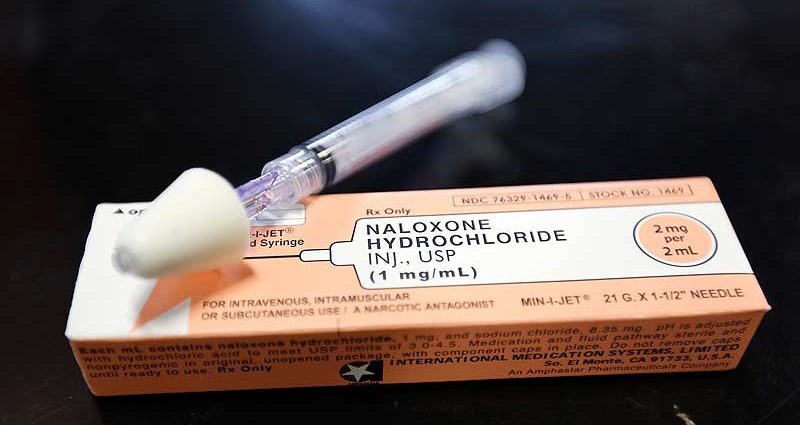|
Following a decision by the National Association of Pharmacy Regulatory Authorities’ (NAPRA), Ontario is making naloxone available in pharmacies across the province without a prescription and at no cost to eligible Ontarians to help reduce opioid overdoses across the province. On June 24, 2016, NAPRA reclassified naloxone as a Schedule II drug when used in an emergency opioid overdose situation outside of hospital settings. This change was effective immediately in Ontario. As a result, naloxone can now be kept behind the counter in Ontario pharmacies and the province’s pharmacists can now provide training on how to safely administer the drug. People at risk of an overdose (or their concerned family members or peers) will not need a prescription and will not pay anything when receiving naloxone. The province recognizes that opioid addiction and overdose is a serious public health concern. An overdose of opioid drugs – such as fentanyl, morphine, heroin, methadone or oxycodone – can cause a person’s breathing to slow or stop. Naloxone is an injectable medication that can reverse this effect so the person can breathe more normally and potentially regain consciousness. This provides precious time to seek emergency medical attention to treat the overdose. Last year, Ontario joined other provinces and territories in calling for Health Canada to remove the prescription status of naloxone. Previously, naloxone was available only by prescription or through the Ontario Naloxone Program. Addressing opioid addiction is part of the government’s plan to build a better Ontario through its Patients First: Action Plan for Health Care, which provides patients with faster access to the right care; better home and community care; the information they need to live healthy; and a health care system that is sustainable for generations to come. |
QUICK FACTS
|
|

Makes sense, unless you believe that those addicted to drugs should die sooner rather than later.
So Canada is a world leader in opioid prescriptions and Ontario the leading province. 5,000 opioid overdose deaths in Ontario since 2000 has given cause for our overseers to conclude in conjunction with reports from other provinces that there is a problem. This is part of the solution that the wised of wise have come up with. To bad restrictions on prescribing opioids wasn’t in the cross hairs.